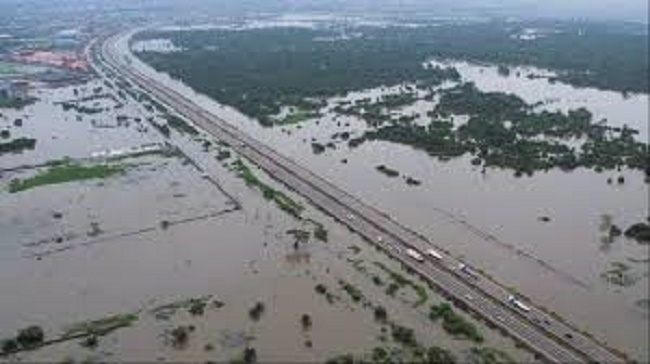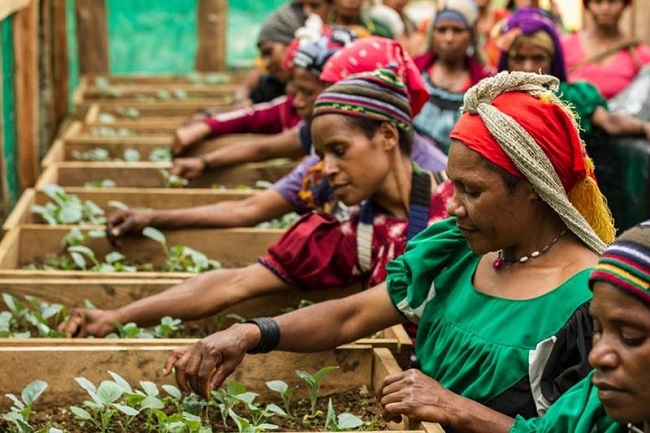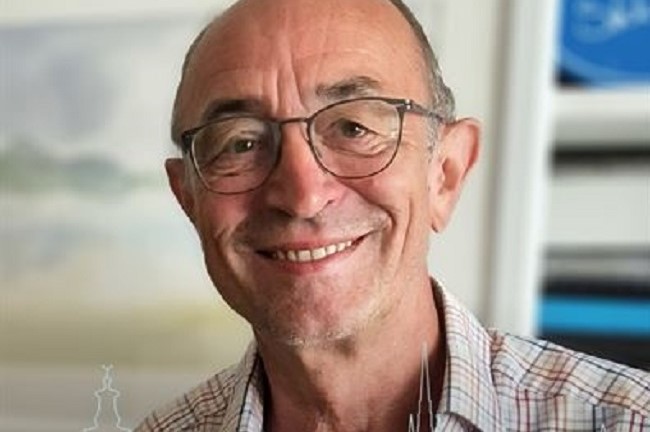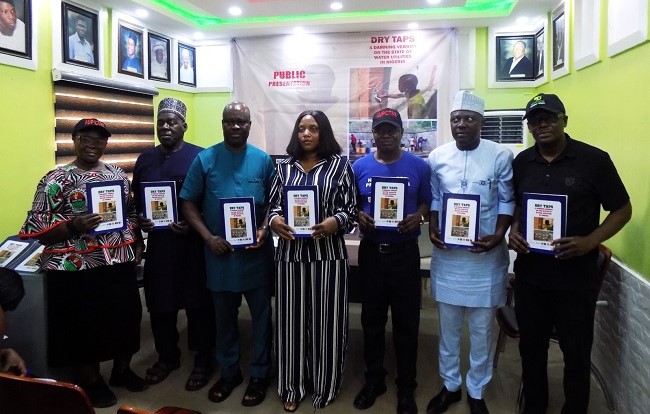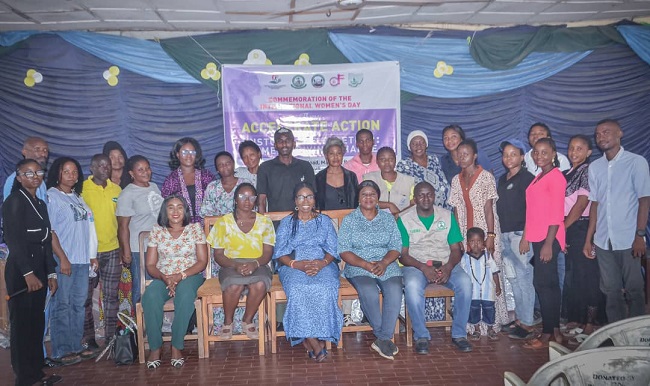Over 100 students, teachers and other stakeholders gathered in Abuja on Tuesday, March 18, 2025, to unveil a co-created Climate Education Manual for teaching climate change in Nigerian Schools.
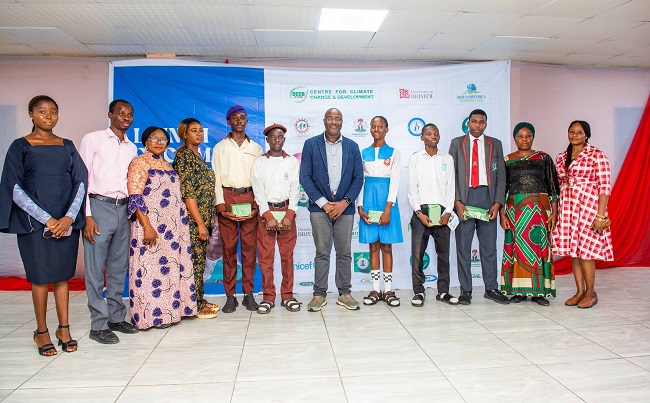
The Climate Change Manual, an initiative of Prof Chukwumerije Okereke, with funding from the University of Bristol, United Kingdom, was designed to equip Nigerian secondary school students with the essential knowledge and practical tools needed to advance their knowledge of climate literacy. The manual built on the success of co-creation and the inception workshops held in Abuja and Enugu State in September 2024.
Delivering her goodwill message, Dr. Iniobong Abiola-Awe, Director of the Department of Climate Change (DCC), Federal Ministry of Environment, described the Climate Manual initiative as a step forward. She praised the collective effort of all stakeholders in ensuring that the younger generation is empowered to take climate action from their young age and contribute towards the development and enhancement of a sustainable, low carbon economy.
Dr Abiola-Awe highlighted several initiatives that the DCC has implemented across several capital cities of the nation to enhance the capacity of the next generation to innovate and mentor fellow learners in taking climate actions.
“Today, as we launch this manual, I want to encourage everyone here present to adopt the use of this manual. There is no small pace in learning. We learn every day, and every opportunity provides that. Together we will all make a meaningful difference, not only for this generation, but generations to come,” she added.
In his remarks, the Director General of the Department of Science, Technology and Innovation, F.C.T.A, Education Secretariat, represented by Dr. Mrs. Bukola Obateru, thanked everyone who contributed to the development of the manual, stating that their efforts will shape the future of the planet. He added that the fight against climate change is a collective responsibility.
“Through this education awareness that we are creating, and the action it motivates, we can build a sustainable future for ourselves and generations to come,” he said, while thanking Professor Chukwumerije Okereke and his team at the Society for Planet and Prosperity for driving this initiative.
The Director of the National Orientation Agency (NOA), Mallam Lanre Issa-Onilu, represented by Miss Peace Gobo, expressed his support for the Climate Manual initiative. He stated that, as part of NOA’s mandate to drive awareness and sensitisation, the NOA has developed a National Climate Charter, with climate awareness as one of the anchor pillars.
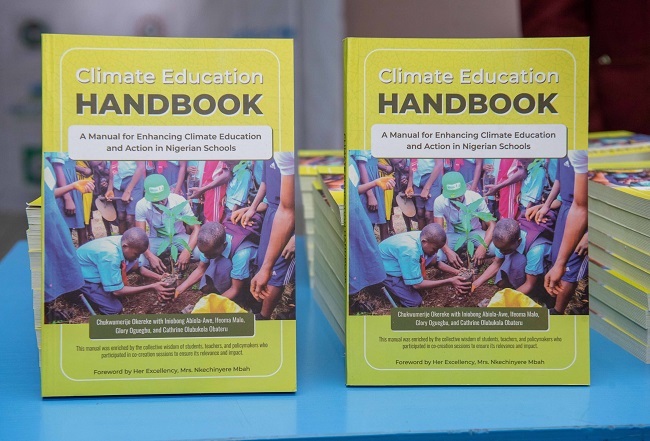
He also noted that the agency has recently created the Environment, Climate and Energy department within the agency to drive the present administration’s environmental sustainability goals. He also stressed the need for every citizen to be climate aware, especially the young ones to whom the future belongs.
Highlighting his optimism in his goodwill message, Sir Richard Inyamkume, Registrar General, Institute for Climate Smart Research and Policy advocacy, stated that this initiative marks a pivotal step in the journey towards a sustainable future. He added that the initiative also resonated strongly with the work being carried out by the institute.
“As we launch the climate education manual, we aim to empower individuals, students, educators, and communities to deepen their understanding of climate change, and also recognise its impact on our world today. Through the knowledge that we will give to them through this manual, we will pave the way for informed action. So, let this manual serve as a tool of hope and change guiding us towards a greener future,” Sir Inyamkume stated.
Several distinguished stakeholders, including Miss Ifechi Anikwe of Clean-Tech Hub, Mr. Shekwoyemi Kure from ActionAid Nigeria, Mrs Chioma Ome, Country Director of Solar Sister Nigeria, Rifkatu Joseph Odeyemi from Eco-Friendly Sensitisation and Advocacy were present and endorsed the manual, describing it as a timely resource that will help to drive Nigeria’s Sustainable Development Goals (SDGs).
Launching the Climate Education Manual, Professor Okereke gave an overview, objectives and the methodology through which it was developed, stating that the next step is to ensure that it is used in order to achieve its objectives. Prof Okereke thanked all the stakeholders who contributed to the development of the Climate Education Manual.
He also thanked the First Lady of Enugu State, Mrs. Nkechinyere Mbah, for her endorsement, and for writing a powerful foreword for the manual.
The launch brought together students, teachers, and key stakeholders, as witness to this historical milestone and unveiling of the much-anticipated manual.
By Ugochukwu Uzuegbu (Communication Specialist, SPP), Elochukwu Anieze (Senior Policy Analyst, SPP) and Ginika Okoroafor (Research Fellow, SPP)


